|
Today, we launch the first episode of Season 3 of Don’t Call Me Resilient, our podcast that takes on systemic racism and the ways it permeates our everyday lives.
In this episode we’re taking a look back at what happened since the unmarked graves of 215 Indigenous children were found on the grounds of the former Kamloops Indian Residential School.
We explore the immediate political response, the widespread grief and outcry but also, how none of that lasted — despite communities continuing to find unmarked graves.
My first guest is Veldon Coburn, assistant professor at the Institute of Indigenous Research and Studies at the University of Ottawa. He authored The Conversation’s first article following the Kamloops findings. Also joining me on the episode is Haley Lewis, Don’t Call Me Resilient producer and culture + society editor here at The Conversation Canada. She led our coverage of the findings last year.
Please listen in. We hope you find this first conversation and the ones that follow in the coming weeks as inspiring as we do.
Also today:
All the best.
|

|
Vinita Srivastava
Host + Producer, Don't Call Me Resilient | Senior Editor, Culture + Society
|
|
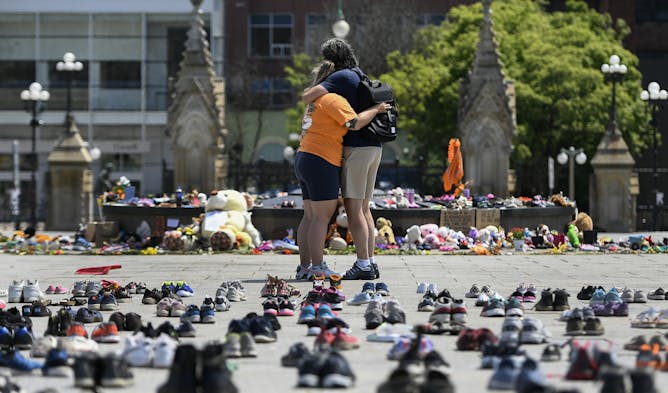
Two people embrace in front of the Centennial Flame on Parliament Hill, in Ottawa at a memorial for the 215 children whose remains were found at the grounds of the former Kamloops Indian Residential School.
THE CANADIAN PRESS/Justin Tang
Vinita Srivastava, The Conversation; Haley Lewis, The Conversation
In today’s episode of Don’t Call Me Resilient, we take a look at what has happened since the unmarked graves of 215 Indigenous children were found in Kamloops B.C.
|
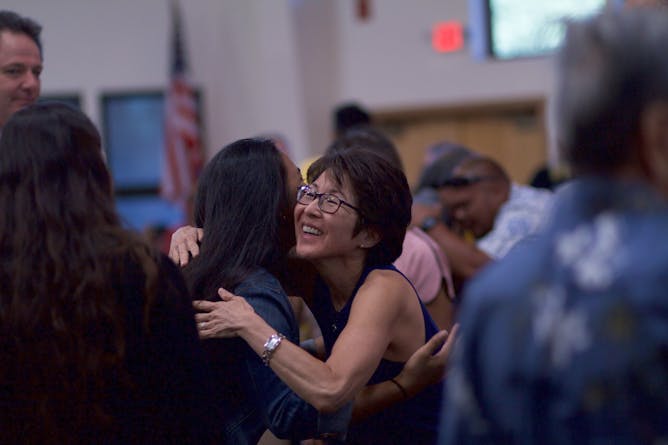
It’s safe to say that quite often, there’s an unspoken expectation that discourages honest replies.
(Erika Giraud/Unsplash)
Marnie Wedlake, Western University; Jennifer Irwin, Western University; Shauna Burke, Western University
Is it time for us to overhaul this longstanding symbol of social grace?
|
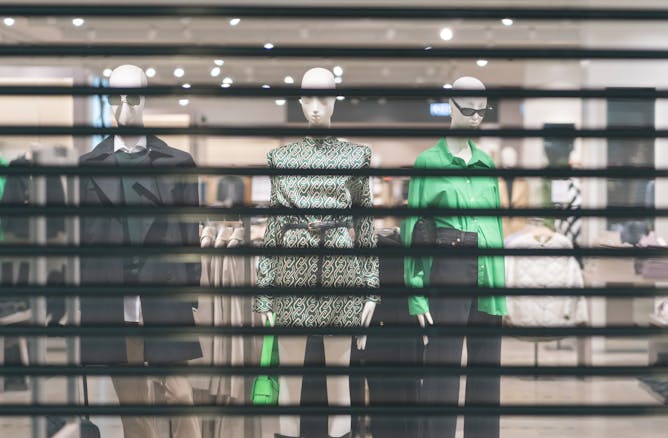
A closed Mango store in a shopping mall in St. Petersburg, Russia. The company temporarily suspended operations in Russia in March to protest the invasion of Ukraine, joining a global corporate boycott against the country.
(Shutterstock)
Dirk Matten, York University, Canada
We should demand greater social responsibility from businesses, but pressuring them to undertake responsibilities that only governments can address is the wrong way to get there.
|
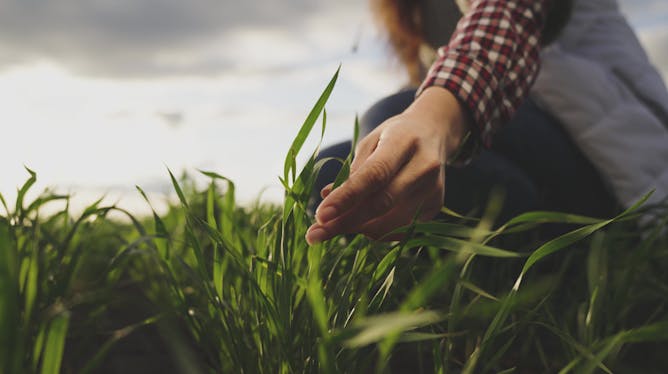
The key to unlocking the benefits of new agricultural technologies is to develop food systems where the waste products from one step become valuable inputs in another.
(Shutterstock)
Rene Van Acker, University of Guelph; Evan Fraser, University of Guelph; Lenore Newman, University of The Fraser Valley
The world is facing one of the century’s biggest challenges: How to nutritiously feed the growing population, address climate change and not destroy the ecosystems on which we all depend for life.
|

A future marked by the Metaverse may fundamentally change how we operate on a daily basis.
(Marc Lee/Wikimedia Commons)
Mischa Young, Université de l'Ontario français; Sarah Choukah, Université de l'Ontario français
New virtual realities are changing the way we interact with our urban spaces. How will the metaverse make some urban amenities redundant and others indispensable?
|
La Conversation Canada
|
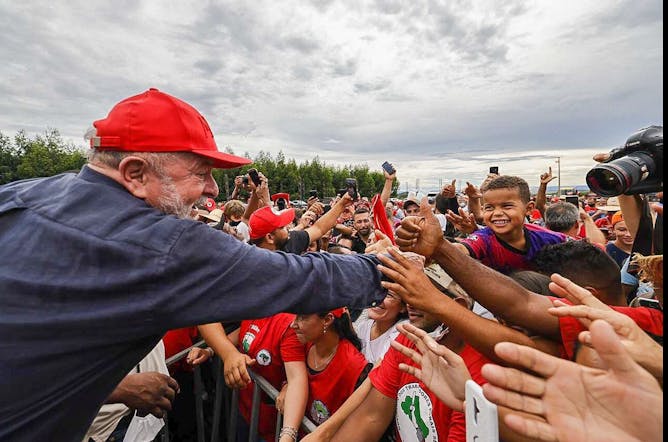
Lula auprès de militants du Mouvement des sans terre, le 21 mars 2022. En avance dans les sondages sur le président sortant, Jair Bolsonaro, sa victoire n'est cependant pas assurée.
(LulaOfficial)
Jonas Lefebvre, Université de Montréal
À 6 mois des élections au Brésil, l’ancien président Lula a une avance confortable sur le président sortant, Jair Bolsonaro. Mais le candidat du Parti des travailleurs a de nombreux défis devant lui.
|
Ukraine Invasion
|
-
Paul Morrow, University of Dayton
Their drawings and paintings often express a mix of horror, fear, hope and beauty.
|
|
Environment + Energy
|
-
Matthew Adams, University of Brighton
The more new housing a neighbourhood has, the less of the local area is dedicated to green space, which has knock-on effects for wellbeing and the climate crisis.
|
|
Health
|
-
Lindsay Broadbent, Queen's University Belfast
Even taking into account people who have had COVID but didn’t know it, there’s still likely to be a group of people who have never been infected.
|
|
Science + Tech
|
-
Tam Nguyen, University of Dayton
Developing software used to require programming skills. Today, a growing number of people are building websites, games and even AI programs without writing a line of code.
|
|
|
|
| |
| |
| |
| |
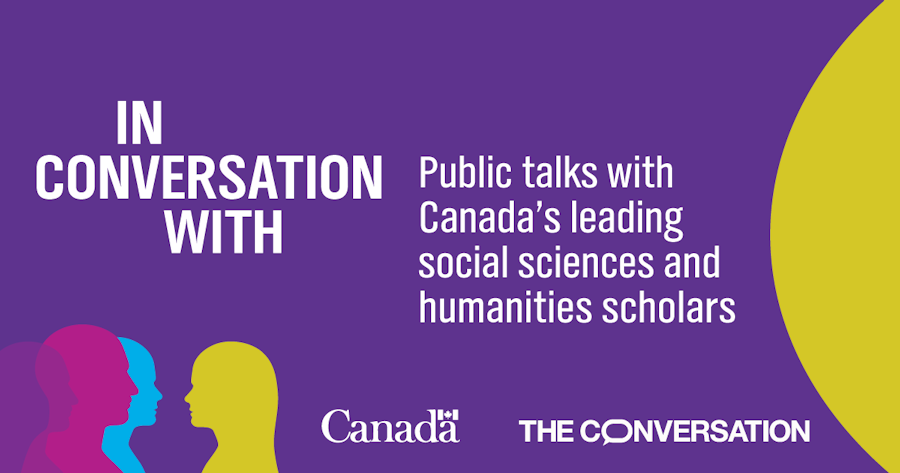
|
| |
| |
| |
| |
| |
| |
|
|